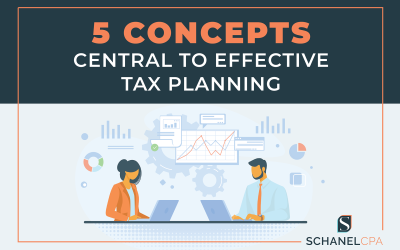
What is an Enrolled Agent?
Although no formal credentials are required to work as a tax preparer in the U.S., hiring one with a professional license protects your interests. Besides the obvious choice of hiring a CPA, an Enrolled Agent, or EA, is another option.
Enrolled Agents are licensed at the federal level by the IRS. EAs are authorized to prepare returns and advise their clients in tax matters and are allowed to represent taxpayers in disputes with the IRS. EAs may also be bookkeepers or have degrees in accounting. Some EAs specialize exclusively in tax representation, while others provide a full range of tax, bookkeeping, and accounting services. EAs may have solo practices or work at public accounting firms. EAs can also be found in the tax departments of large corporations.
What are the requirements to become an Enrolled Agent?
Enrolled Agents must pass a three-part, 10.5-hour exam that covers individual and business taxes and tax representation issues. They must also pass a background check. EAs also keep their knowledge up with continuing education.
What’s the difference between an EA and a CPA?
EAs and CPAs are both licensed professionals. EAs are licensed at the federal level, while CPAs are licensed by the states. Like tax attorneys, both can represent clients in tax disputes before the IRS. EAs can represent clients from any jurisdiction before the IRS, while tax attorneys and CPAs are generally limited to practicing in the state or jurisdiction that licensed them.
To become a CPA, candidates must pass a lengthy, multi-part exam. Unlike the EA exam, the content extends beyond taxation to include accounting, audit, business, and basic economics. CPAs must have at least a four-year college degree that includes specific coursework in accounting. Most states also require an additional year of college coursework.
The biggest difference between CPAs and EAs is the area of expertise they must demonstrate for their credential: EAs have an in-depth knowledge of federal taxes while CPAs must demonstrate competence across a broad area of accounting, finance, audit, and taxation. In fact, some CPAs may not have much in-depth expertise in tax accounting if they never worked as a tax professional.
Therefore, anyone looking for a tax professional should seek out an EA or a CPA who specializes in tax. If you have any questions, please feel free to contact our offices.
Schanel & Associates is a CPA firm specializing in accounting, tax, business valuation and litigation support serving Palm Beach, Martin and St. Lucie Counties and beyond since 1993. Our CPAs and accounting professionals work with individuals, businesses, estates and trusts to provide everything you need under one roof. For more information, contact us today at 561-624-2118.
Todd Schanel has been a principal at Schanel & Associates since 2004, where he specializes in financial planning, tax planning and consulting services. He also serves as Founding Principal and Director of Investment Advisory Services at Core Wealth Management, our sister company, where he leads an accomplished professional team offering independent and objective financial advice to help clients achieve their financial goals. Todd has been a CFA Charterholder since 2005, and in 2007 he earned his Certified Financial Planner® designation and became a licensed CPA. In 2015, he earned the Certified Valuation Analyst (CVA) designation.



